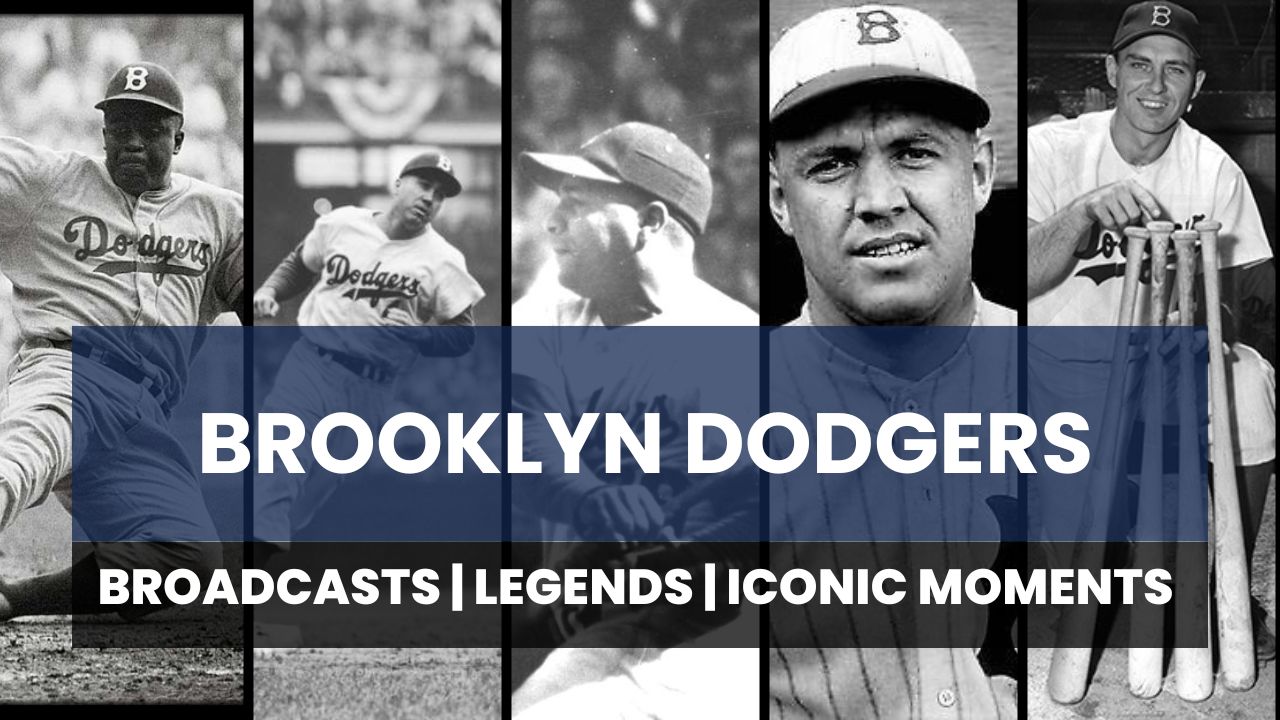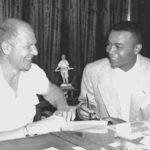Don Kessinger Stats & Facts
Don Kessinger
Positions: Shortstop
Bats: Both Throws: Right
Height: 6′ – 1″ Weight: 170
Born: Friday, July 17, 1942 in Forrest City, AR USA
High School: Forest City HS (Forest City, AR)
School: University of Mississippi (Oxford, MS)
Debut: September 7, 1964 vs. MLN 2 AB, 1 H, 0 HR, 0 RBI, 0 SB
Last Game: July 31, 1979 vs. NYY 0 AB, 0 H, 0 HR, 0 RBI, 0 SB
Full Name: Donald Eulon Kessinger
Nine Other Players Who Debuted in 1964
Tony Perez
Bert Campaneris
Don Kessinger
Paul Blair
Lou Piniella
Phil Niekro
Luis Tiant
Mel Stottlemyre
Mickey Stanley
Vintage Baseball HOT ON EBAY
Card Collections ENDING SOON ON EBAY
MOST WANTED ROOKIE CARDS
VINTAGE SPORTS TICKETS
Baseball Hall of Famers
Notable Events and Chronology
Don Kessinger
Kessinger accepted a $25,000 bonus to sign out of the University of Mississippi. With Ernie Banks, Glenn Beckert, and Ron Santo, he gave Chicago an all-star infield. Though he led the NL in errors in his first season as a regular (1965), Kessinger quickly established himself as an outstanding fielder, leading league shortstops in putouts three years, assists four years, double plays four years, and fielding average once. He played 54 straight errorless games in 1969, then the record for shortstops, and started for the NL in five All-Star games. He was a pesky, reliable hitter, with a top average of .274 in 1966 and 1972. On July 17, 1970, he went 6-for-6 in a 10-inning game. The clean-living Kessinger served as player-manager for the White Sox in 1979.
Baseball career
Kessinger graduated from the University of Mississippi, where he was initiated into the Sigma Nu Fraternity. He was signed by the Chicago Cubs as an amateur free agent in 1964. Kessinger was assigned to play for the Double-A Fort Worth Cats before making his major league debut on September 7, 1964.
He returned to the minor leagues for the 1965 season but, was brought back by the Cubs in June of that year and became their starting shortstop. The 1965 season would mark the first of nine consecutive seasons in which Kessinger would work alongside Cubs’ second baseman Glenn Beckert. He ended the season hitting for a .201 batting average and led the National League shortstops in errors but, showed some promise by leading the league in range factor.
As the 1966 season got underway, Kessinger continued to struggle with his hitting when new Cubs manager Leo Durocher encouraged him to become a switch hitter. With the help of coach Pete Reiser, his hitting began to improve, posting for a .304 batting average during the second half of the season. Durocher made Kessinger his leadoff hitter, a spot he would hold for many years. He ended the year with a career-high .274 batting average and led the league’s shortstops with 474 assists.
Kessinger continued to improve his fielding and in 1968, he was recognized as one of the top shortstops in the league when he was voted to be the starting shortstop for the National League in the 1968 All-Star Game. At the end of the season, he ranked first among the league’s shortstops in range factor and, led the entire league in assists. While he also led the league in errors, he attributed this to the fact that he reached more ground balls than the average shortstop.
Kessinger repeated as an All-Star in 1969, in a year which saw the entire Chicago Cubs infield join him on the 1969 All-Star team, with Kessinger and Cubs’ third baseman Ron Santo in the starting line-up. In 1969, he set a major league single-season record for shortstops by playing in 54 games without committing an error, breaking the record previously set by Chico Carrasquel in 1951. The Cubs were in first place in the National League Eastern Division for 180 days of the 1969 season, before going 8-17 in their final 25 games, while the New York “Miracle” Mets went 37-11 in their final 48 games to clinch the Eastern Division pennant. Despite the Cubs’ late-season collapse, Kessinger scored 109 runs, hit for a .273 batting average with a career-high 181 hits, including 38 doubles; second-most in the league. He led the league’s shortstops in putouts, finished second in fielding percentage and once again led the entire National League in assists. He finished in 15th place in balloting for the 1969 National League Most Valuable Player Award and won his first Gold Glove Award. In his book, The Bill James Historical Baseball Abstract, baseball historian Bill James cited manager Durocher’s method of using his regular players every day without any rest days as a factor in the Cubs’ collapse.
Kessinger had another good season in 1970, producing a .266 batting average while scoring 100 runs. He led the entire league in assists for the third consecutive year and claimed his second Gold Glove Award. He continued to be one of the cornerstones of the Cubs’ infield, earning three more All-Star berths in 1971, 1972 and 1974. In October 1975, after 11 seasons with the Cubs, Kessinger was traded to the St. Louis Cardinals. He was the last remaining Cub from the 1969 season when they almost won the pennant.
The 33-year-old Kessinger still played well in St. Louis, ending the season with a .320 on-base percentage and was second in the league in range factor. In August 1977, he was traded to the Chicago White Sox who were seeking to bolster their infield strength. In October 1978, White Sox President Bill Veeck named Kessinger to be the team’s player-manager. With the White Sox languishing in 5th place in the standings, Kessinger resigned in August 1979 and was replaced by Tony LaRussa. He retired as a player on August 2, 1979.
Career statistics
In a 16-year major league career, Kessinger played in 2,078 games, accumulating 1,931 hits in 7,651 at-bats for a .252 career batting average along with 14 home runs, 527 runs batted in and an on-base percentage of .314. He retired with a .966 fielding percentage. A six-time All-Star, Kessinger won the National League Gold Glove for shortstops in 1969 and 1970. In three different seasons with the Cubs, he turned 100 or more double plays. Kessinger had 6,212 assists during his career, ranking him 14th all-time among major-league shortstops. In 1978, he was named the recipient of the Lou Gehrig Memorial Award, presented annually to the Major League baseball player who both on and off the field best exemplifies the character of Lou Gehrig.
Personal
Don Kessinger’s son Keith Kessinger had a brief career as a major league baseball player.
Don Kessinger was hired prior to the 1991 season as head baseball coach at his alma mater, the University of Mississippi. Kessinger would spend six years as the Ole Miss skipper, leading the Rebels to four 30-win seasons. His 1995 team produced a school record for wins, going 40-22 and earning the school’s first NCAA Regional bid since 1977. Ole Miss finished on the verge of its first World Series appearance since 1972, placing second at the NCAA Atlantic I Regional behind host-Florida State. Following the 1996 season, Kessinger resigned his head coaching position to take an administrative post within the athletic department. He finished with a six-year record of 185-153.
@ET-DC@eyJkeW5hbWljIjp0cnVlLCJjb250ZW50IjoicG9zdF90YWdzIiwic2V0dGluZ3MiOnsiYmVmb3JlIjoiTGVhcm4gTW9yZSBhYm91dCB0aGUgdGVhbXMsIHBsYXllcnMsIGJhbGwgcGFya3MgYW5kIGV2ZW50cyB0aGF0IGhhcHBlbmVkIG9uIHRoaXMgZGF0ZSBpbiBoaXN0b3J5IC0gLSAtIC0gLSAtIC0gIiwiYWZ0ZXIiOiIiLCJsaW5rX3RvX3Rlcm1fcGFnZSI6Im9uIiwic2VwYXJhdG9yIjoiIHwgIiwiY2F0ZWdvcnlfdHlwZSI6InBvc3RfdGFnIn19@
Vintage Baseball HOT ON EBAY
Card Collections ENDING SOON ON EBAY
MOST WANTED ROOKIE CARDS
VINTAGE SPORTS TICKETS
Baseball Hall of Famers
Factoids, Quotes, Milestones and Odd Facts
Coming soon
Other Resources & Links
Baseball-Almanac.com Retrosheet WhatIfSports: Don Kessinger
More Kessinger Pages
Don Kessinger Overview
View Player Info from the B-R Bullpen
View Player Bio from the SABR BioProject





